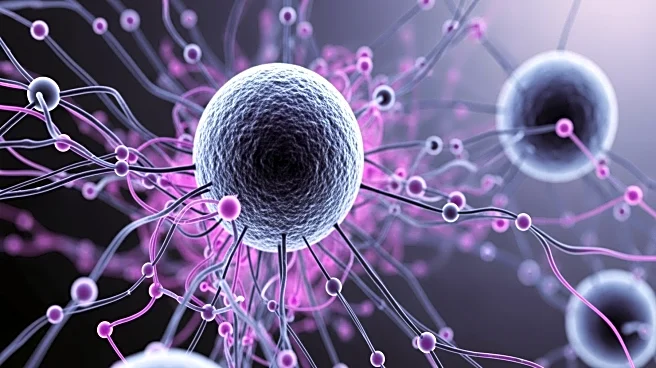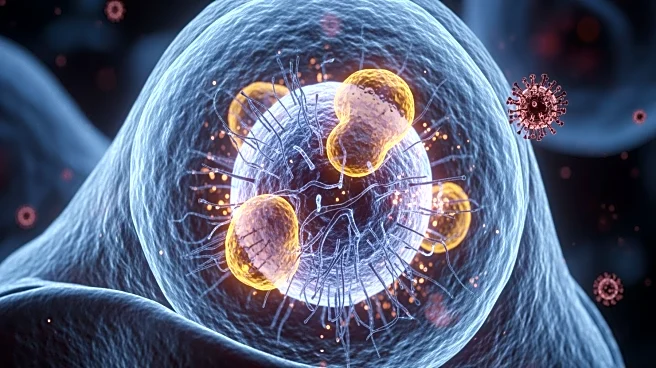What's Happening?
A study has identified multicellular immune ecotypes within solid tumors that can predict the therapeutic benefits of immune checkpoint inhibitors (ICIs). The research analyzed data from the ORIEN Avatar cohort, which includes over 14,000 patients, to categorize
tumors into specific ecotypes based on molecular profiling. These ecotypes, such as CE9 and CE10, are associated with favorable survival outcomes and enhanced immune activity, suggesting their potential as predictive markers for ICI response.
Why It's Important?
The identification of immune ecotypes offers a promising approach to personalize cancer treatment, allowing clinicians to predict which patients are likely to benefit from ICIs. This could lead to more effective treatment strategies, improving survival rates and reducing unnecessary exposure to therapies that may not be beneficial. The study also highlights the importance of integrating genomic and transcriptomic analyses into clinical practice to enhance cancer management.
What's Next?
Further research will focus on validating these ecotypes in larger, diverse patient populations and exploring their application in clinical settings. The study's findings may lead to the development of diagnostic tools that can identify ecotype-specific markers, enabling more precise treatment decisions. Additionally, researchers may investigate the underlying mechanisms that drive the prognostic value of these ecotypes.
Beyond the Headlines
The study underscores the potential of using molecular profiling to understand tumor biology and improve cancer treatment. By identifying specific immune ecotypes, researchers can gain insights into the complex interactions within the tumor microenvironment, paving the way for novel therapeutic approaches.














